Andrew and Harry may be less of a problem than Charles
The heir’s inability to understand how out of tune his pet causes can seem to a sceptical new generation may jeopardise the monarchy’s future.

When something is important to a country’s history, identity and morale, there is a disturbing sense of fragility when it hangs on the life of one aged individual.
The Queen is 96: indomitable but not immortal and calmly well aware of it. She has made elegant adjustments to indicate the future: reducing her travel and having Prince Charles open parliament (albeit with a crown on an empty throne beside him).
While still at her post, she is cautiously easing the way for her successor and endorsing Camilla, as Queen Consort. Yet she is still the head of state: talking with foreign leaders; doing public and ceremonial events, often without a stick; reading her red boxes and being ready for weekly audiences with whichever prime minister we send her next.
Her steadiness assumes the continuity of a constitutional monarchy. Many, like me. believe it to be a useful structure, and even many republicans accept Elizabeth II’s long, faithful reign represents a uniting, benign and apolitical vision of stability. But polls show support in Britain is down to 61 per cent, with republican views most prevalent among the youngest adults.
These are, of course, the ones likely to see Prince Charles follow his mother, and eventually the coronation of a middle-aged William.
They also happen to be a generation poorer and less secure than their parents; justifiably resentful of visible wealth and privilege, individualist and egalitarian and deeply suspicious of any lack of transparency and integrity, especially financial.
So it could hardly be a worse moment for the heir himself, Prince Charles, to face awkward questions about huge Middle Eastern donations – one literally a suitcase full of cash – destined for a charity that involves not only his pet social projects but his own estates.
The Castle of Mey or Dumfries House mean little to most people; there’s high toxicity in the suggestion that an aide close to Charles offered access, honours, even citizenship in exchange for money (possibly itself suspect).
Previous reports of royals tempted into exploitation were more distant, such as Sarah, Duchess of York, or more distant cousins. This is the heir himself, the man who could be king any minute.

As the Queen’s Platinum Jubilee glow fades in Britain, this is the moment to think about we want of our royalty, what we are likely to get and what endangers its survival.
The focus has to be personal. It may seem odd for a matter of public affairs to be intimately entangled with private lives, but here family does matter. Americans have a succession of “first-families": Kennedy Camelot years, likeable Obamas, dynastic Bushes, down-home Carters, alarming Trumps.
Scandals and rumours, affairs and impeachments, convictions and rehabs in such a family are briefly sensational, but everyone knows there’ll be another lot along in four or eight years with their own virtues and shortcomings and feuds.
Britain, meanwhile, is stuck with just the one figurehead tribe: and as the Victorian Walter Bagehot said about royal weddings, they represent “a brilliant edition of a universal fact”, and thus rivet our attention. We all belong to families or are building one, so every royal marriage, divorce, sibling rivalry, estrangement or troublesome uncle invites comparison.
We feel sympathy, contumely, merriment, exasperation, envy, revulsion or affection, but we can’t ignore them. Not unless we abolish them.
In family terms the Queen is having a run of bad luck. It’s not quite the annus horribilis: Princess Anne and the Wessexes work on, and the Cambridges are popular and dutiful.

But the cloud over Charles, about foreign donations and associated misjudgments, hangs heavy. So does his tendency to meddle in matters that properly belong to a shared democracy, diplomacy or city planning. It is too easy for such reports, however moderate, to blur the view of his unquestioned good works with the Prince’s Trust and the fact that he was ahead of the curve over environmentalism.
Far worse is the matter of Prince Andrew, disgraced by association with the sexual predator Jeffrey Epstein, and for his reputation for odd financial arrangements and taking favours. The Queen’s personal loyalty was shown, startlingly, when this favourite son led her to her place at the Duke of Edinburgh’s memorial service; but he is stripped of military titles and royal patronages and the city of York doesn’t want him as its duke.
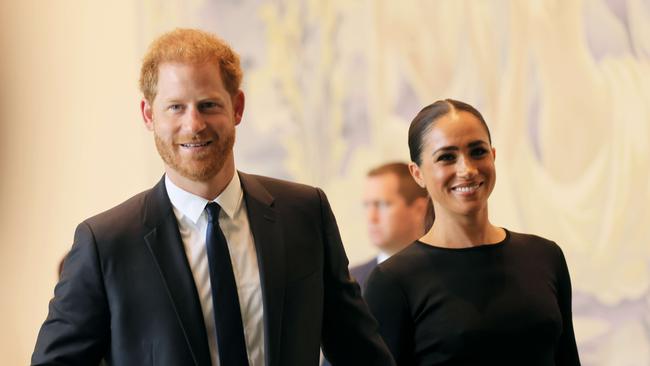
Elsewhere in the family tree there is the Queen’s grandson Prince Harry out in California, repeatedly expressing (for high media fees) aggrieved feelings about his upbringing and scorn for the public role he rejected. His wife, Meghan, openly accuses her royal in-laws of racism and unkindness.
Harry’s memoir is due later this year in collaboration with an American author: thanks to its bold breakaway history, US culture is always half-fascinated, half-repelled by the idea of a monarchy, even a powerless one.
The book will make a splash, reiterate Harry’s bitterness and probably distress the Queen (who won’t show it). It will feed into the miasma of unpleasantness around the royal family, and that is likely to be taken more to heart by the youngest than by their parents and grandparents, who have seen decades of complicated families around them and are readier to roll their eyes at Harry’s complaints.

The book is also unlikely to deliver many really damaging facts. So as a reasonably supportive soft monarchist, my instinct is that Harry is the least of the threats to the institution. America seems to be slowly tiring of the Sussexes, noticing the private jet trips and the irony of their determined use of royal titles while trashing the institution. The US has “woke” celebrities and lifestyle preachers of its own. Their star will fade.
In this country, people who cheered at his wedding and admired his former scrapes as “too much soldier, not enough prince” seem less amused now that the brave soldier and larky lad presents as a fragile, overprivileged whiner.
He seems ever less relevant to the royal family; though like Andrew it would help if his dukedom and “counsellor of state” status were removed, followed by a brisk act of parliament to wipe them from the order of succession.
It isn’t impossible: not long ago merely becoming a Roman Catholic removed some members. Right now government and indeed the palace may think, why poke a wasp’s nest? But it would be surprising if Harry’s memoir did not provoke some action.
Yet thinking about these two maverick family members, fading into irrelevance, I came to the slightly dismaying conclusion that if there is a real difficulty in the dynasty, it is the heir himself, Prince Charles.

The dismay is because I have always rather liked him and his work. If you see him alongside his Prince’s Trust youngsters, applauding and trying to understand their start-ups, it is inspiring. They seem to feel that he may be a bit of a weird old toff but he is their weird old toff.
He doesn’t try to be down-with-the-kids or affect a Blairish glottal stop, but remains himself in manner, dress and accent. They respect that. It’s a good look in a monarch: be interested, dignified but kindly, neutrally benign. The Queen does it superbly: visiting child victims of the Manchester concert bombing, murmuring “Ariana Grande, she’s very good, isn’t she?”, or saying “Grief is the price we pay for love” after 9/11.
Charles at his best can do this: at public events he is modest, courteous, interested, and – since his second marriage and the wider acceptance of Camilla – a lot less morose than he was when I encountered him around the millennium and he spent a whole course of dinner complaining about the media.
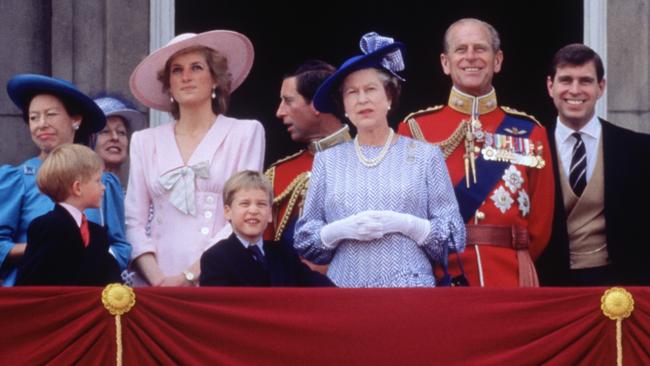
Certainly Diana’s shadow is long: another retelling of her story has just reached the screens from Sky. It revives memories for those of us who lived alongside it, but is documentary, not narrated or as hysterically partisan as some other retellings.
There is real pathos in the clip of Charles’s admission of his affair, with the awkward pained line “us both having tried”. The recent revelations of Martin Bashir’s subterfuge and grooming of the princess’s vulnerability actually brought down more anger on him and the BBC than on her husband. People know that marriages collapse and that blame is complicated.
Yet Charles is a problem. Even apart from the troublesome charity financial stuff, he’s an elderly man, mid-seventies, not a focus of modern informality like William and Kate.
My generation might feel a grand old man figure will do, and enjoyed the gold coach and trumpet moments of the jubilee as much as the pop music and sky corgi made of drones. There’s something comfortable in saying, “We’re an old country but we plod on. A country that laughs at itself and, for all its flaws, certainly knows how to put on a show.” The Queen’s long service helps, and all her jubilees have had people dressing up, gathering and reminiscing.
In northern autumn 2001 I was on a media advisory committee brought together by the Queen’s private secretary and I remember that there were real doubts about whether people would want the Golden Jubilee the next year. The death of Diana still felt raw, while 9/11 and the “war on terror” made gilt and pageantry feel retro, even silly.
William and Harry as schoolboys were out of sight, as was Camilla Parker Bowles; a divorced Prince Andrew as “trade envoy” was already mocked, as air-miles Andy.

Prince Edward’s television production company had been criticised. The Queen, Duke of Edinburgh, Charles and Princess Anne were still plodding around dutifully, but the family’s glamour and popularity were as low as I can remember. It was widely predicted the jubilee would be a flop.
The interesting thing was that it wasn’t: we had thousands of street parties, Brian May twanging the national anthem on the palace roof, daft projections of terraced houses on its walls to Madness singing Our House, a Mall concert, London Transport employees handing out chocolates.
The predictions were wrong, largely because Britain likes a party and royalty makes a cheerful centrepiece. The next two jubilees have been just as much fun, one including the faux-parachuting of the Queen into the Olympics. Good times.

But chronology means we won’t get another jubilee soon, if ever. And the new generation probably has less affection for the celebratory theatricality around royalty, which has always been one of its greatest assets.
You see that at investitures, with a military band playing showtunes (There is Nothin’ like a Dame) and a figure on the dais handing medals not only to the famous and successful but to unsung heroes of civic and charitable duty. The MBEs for veteran campaigners, special constables and community midwives are the most moving: far more than any celebrity knighthood or pop star honoured on the same day.
Like the jubilees it is atavistic flummery, but feelgood and anchored firmly in a family who have to be seen as benign, dutiful, apolitical and generally approving of good deeds, good fellowship and social stability.
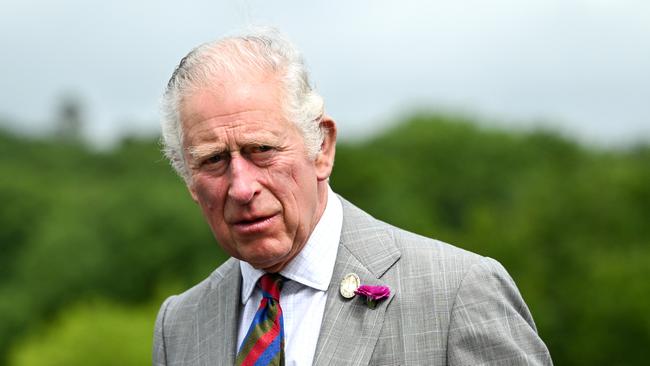
One of the worst things governments do is hand out undeserved honours to the morally dubious rich, thus devaluing the whole shebang: and that brings us right back to Charles and the honorary CBE for the Saudi billionaire Mahfouz Marei Mubarak bin Mahfouz.
So what do we want? Some talk blithely of skipping a generation and putting William and his pretty family straight on the throne when the Queen is gone.
They remember how energising the rhetoric was in 1953 when the coronation of a young princess lit up the postwar ration-book dreariness. Some think that the same magic might work on our present gloom. But it would not only break ancient tradition but create a depressing and possibly disgruntled figure of a sidelined patriarch. Like Pope Benedict, he might even start undermining the younger leader.
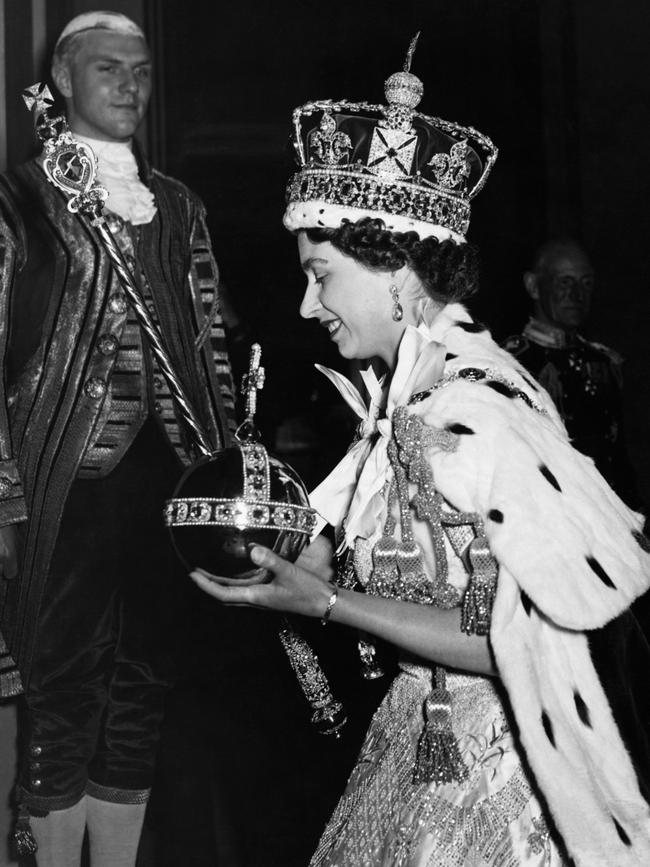
So it feels likely that, yes, there will be a Charles III quite soon, and that monarchists will have to hope that the clouds around him are properly cleared by then (his former valet Michael Fawcett has still not been fully investigated). We should hope also that Charles finds some new and plain-spoken, even quite rude, advisers, in touch with the wider world.
Even so, much will rest on the younger generation continuing to take on the burdens of public appearances, behaving well and seeming attractive.

The royal team needs to be small, hardworking, visible and uncontroversial (it is a bit sad that Andrew’s quite decent daughters are for the moment unlikely to be used much until he has disappeared more thoroughly, and that won’t be soon, because the legacy of Epstein will continue to surface as media dig out more of his set; celebrity users of the girls he exploited).
Princess Anne continues to be an intelligent, underrated asset, though disgracefully no longer a counsellor of state; but she is a septuagenarian and her children and grandchildren are not working royals.
With Harry an irrelevance there’s a risk of overstressing the Cambridges: if they are wise they will try to make sure their children have proper friends and interests and professional training outside the limited socialite set of royal tradition.
It’ll be hard: the media microscope will be trained on them. Still, they have an education if they want it: Prince Harry is exasperating, but his brother and sister-in-law could study his writings, speeches and reminiscences and make damn sure their own children avoid whatever bits of royal life he found so unbearable.
It would also be good to think there is a plan to handle the defection of any of them. The gradual, muddled, kindly meant Harry disaster should be a warning. Better to draw a clear line: in or out, royal job or fend for yourself?
Though I suppose, let my own trade of journalism accept its responsibility: we might need some blanket injunctions against harassing the ones who opt to be private and self-supporting. Nobody deserves the worst of both worlds.
The Times

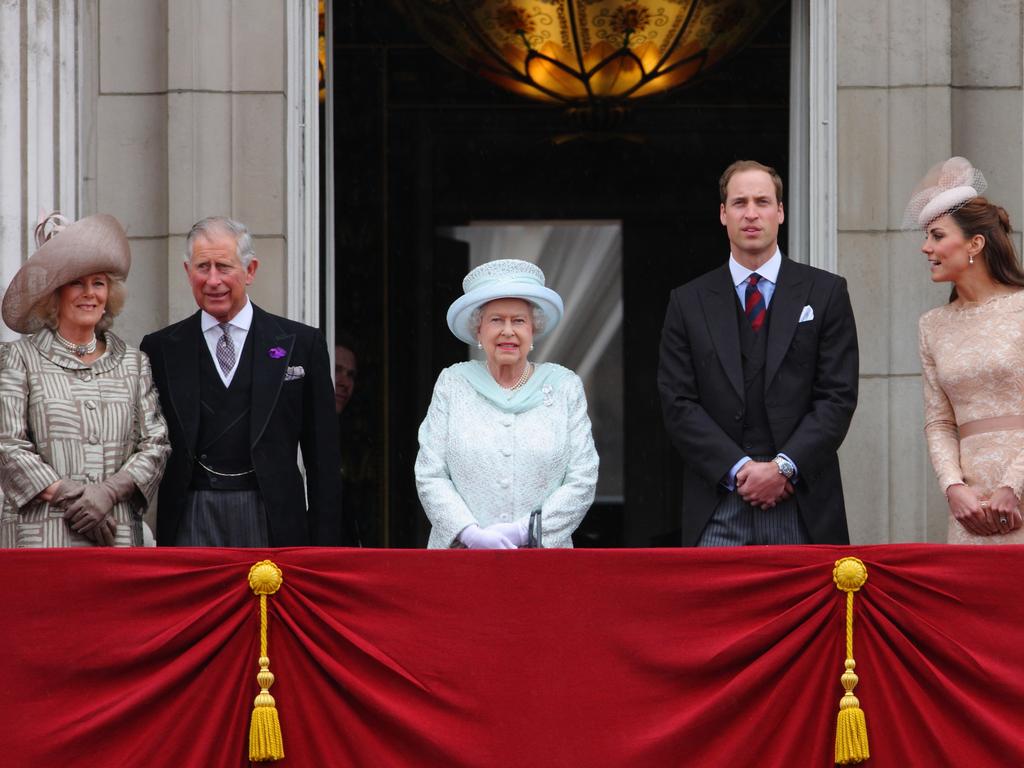


To join the conversation, please log in. Don't have an account? Register
Join the conversation, you are commenting as Logout